Topical Oils
Applying essential oils topically is one of the best ways to get the benefits that they offer. You can use it for skin care or as a natural remedy. The substances found in essential oils are good for skin care, hair, care, and aromatherapy. This guide to topical essential oils provides information for safer and more effective use of essential oils.
Topical oils can be used in various ways depending on the purpose of using them. By applying essential oils directly to the body, you can improve the condition of the affected area while nourishing the body. Learn more about topical oils and how to apply them.
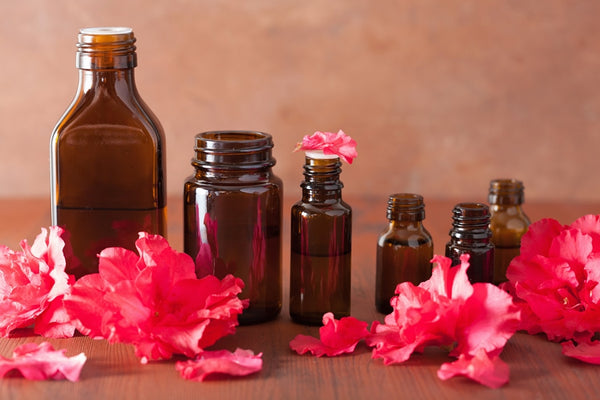
What Are Topical Oils
Topical oils are any kind of oil you can apply directly to skin or hair. Since oils are versatile, you can use one type of oil in various ways. You can use them to provide moisture and nourishment. Oils also help treat specific hair or skin concerns.
Some essential oils are easy to absorb due to their resemblance to our body’s natural oil. However, you need to dilute most essential oils before applying to skin and hair. This might be due to their viscosity and strength. Light oils can be too strong for the skin, causing irritation or harsh skin reactions. Here are some classifications of topical oils:
- Neat - Neat oils are light and gentle, which make them safe to apply directly to skin and hair without diluting. Mild essential oils such as lavender oil, grapeseed oil, and castor oil are neat oils that you can directly apply to skin in small amounts. Neat oils are safe to apply directly to skin. Many types of essential oils are used in natural skin care due to their benefits. Find out how essential oils help with natural skin care.
READ MORE: Natural Skin Care
- Dilute - Essential oils under this classification need to be diluted before applied. They are strong and potent and can cause irritation if not diluted with carrier oils. It is not advisable to use these oils even for aromatherapy since they might cause a burning sensation. These oils include oregano, clove, and cinnamon.
- Sensitive - Sensitive oils should be used with caution, especially for sensitive skin. They should always be diluted with a carrier oil. Do a patch test before using sensitive oils in large amounts. Examples of sensitive essential oils include eucalyptus, bergamot, and peppermint. These are considered hot oils, or oils that give a warming sensation.
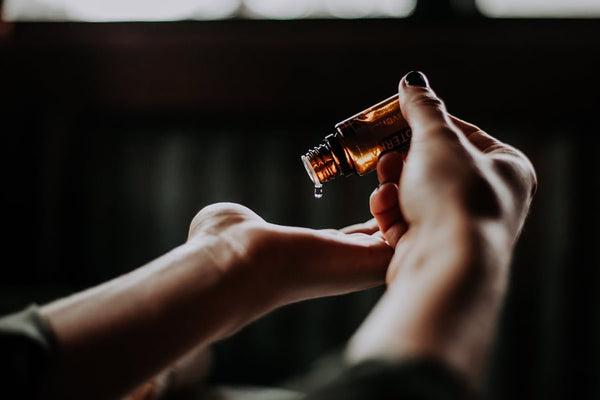
Applying Topical Oils
When using essential oils, you should always practice caution. Some oils may not suit your skin or hair type. They might be too strong or potent for the skin, causing allergic reactions. Here are some methods you need to do before you use oil on your skin or hair.
Choosing A Carrier Oil
Carrier oils are lighter oils that have mild scent and thickness. They are very gentle and moisturizing as well. Carrier oils are mixed with heavier or more potent oils to dilute their harshness. Mixing with carrier oils is used not only in topical application but also in aromatherapy. Learn how to choose carrier oils with these tips:
- When choosing a carrier oil, consider where you’ll be applying the oil. The skin on your face is thinner and more sensitive than the rest of your body. You will need a lighter carrier oil to use.
- The quality of carrier oil can affect the overall effect of the mixture. Get the highest quality of carrier oil you can buy.
- Avoid using carrier oils that have additives or fillers. They might seem lighter and unrefined, but they may contain ingredients that can trigger irritation.
- Carrier oils can be applied by themselves or mixed with another oil.
- Carrier oils are base oils that are versatile and can be mixed with other essential oils.
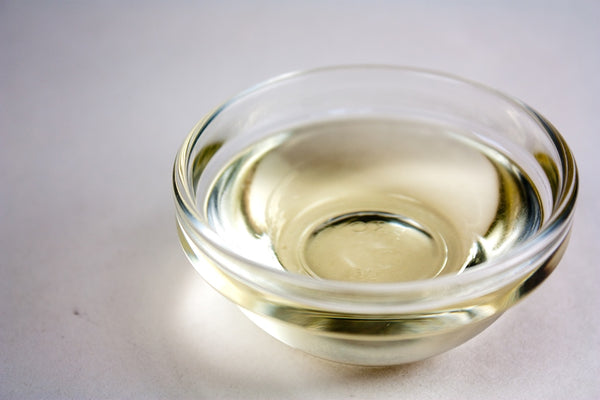
Most carrier oils are extracted from seeds. Cold-pressed unrefined carrier oils are the best type of oil to use for the topical application. The ability of these oils to penetrate the deeper layers of the skin is an important aspect of applying topical oils. Carrier oils bring the compounds of essential oils to the deeper layers of the skin. Here are the most common carrier oils used for skin and hair care:
- Coconut Oil - Coconut oil is rich in essential fatty acids, which help provide moisture and hydration. The oil comes with a thick consistency that is much like a paste. Heat the oil to melt it in a lightweight, clear oil.
- Olive Oil - Olive oil is not as light as other oils, but this means that it has higher moisturizing properties. It has a golden color and a raw earthy aroma. It has a high content of oleic acid which moisturizes skin and hair well.
- Sweet Almond Oil - Sweet almond oil is a very light oil that dilutes thicker oils. It absorbs easily into skin or hair. The oil improves moisture and shine of hair as well. It has vitamins and essential fatty acids that work well to nourish and moisturize skin and hair.
- Jojoba Oil - Jojoba oil is an all-around carrier oil you can use for skin or hair care. It improves collagen production and makes skin softer but firmer to the touch. It is safe and gentle for all skin types, especially acne-prone skin.
- Argan Oil - Argan oil is one of the best carrier oils for hair that helps curb hair fall and other concern. It has a rich gold color and has a thick consistency but it does not leave any greasy residue. The reason why it’s a great carrier oil is that it absorbs well into skin and hair. Learn more about the advantages of using argan oil topically.
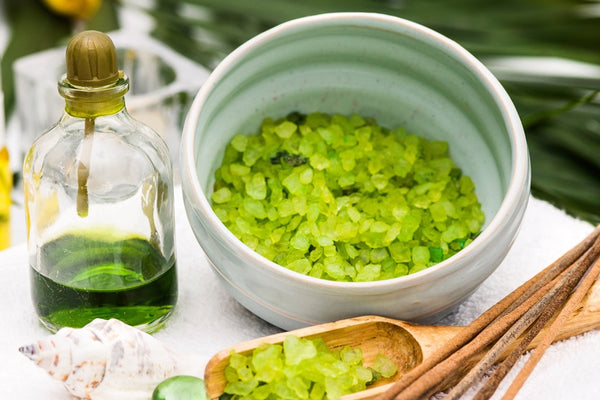
How to Dilute Topical Oils
Dilute your topical oils well to ensure that they absorb fast into the skin without leaving any residue. Here are the steps in diluting topical oils:
- First, choose a suitable carrier oil. Make sure that the carrier oil mixes well with the essential oil you’re using and that it is safe to use on your skin or hair type.
- Use a clean bowl and spoon to mix the oils.
- Be mindful of the ratio of dilution. Carrier oils are used in larger amounts than essential oils. If you’re applying the oil to a sensitive skin or to a small area, there should be less amount of essential oil.
- Even neat essential oils should be diluted if they will be used on sensitive skin.
- Do a patch test on a small area at the back of your hand before using the mixture. Make sure to blend the oils well before application.
Where to Apply Topical Oils
When using topical oils, determine where to apply the oil and its size. The amount of oil you will use will depend on how large the area is. You can apply topical oils anywhere on your body as long as it is safe and nontoxic. Here are common areas where you can apply topical oils and their effects:
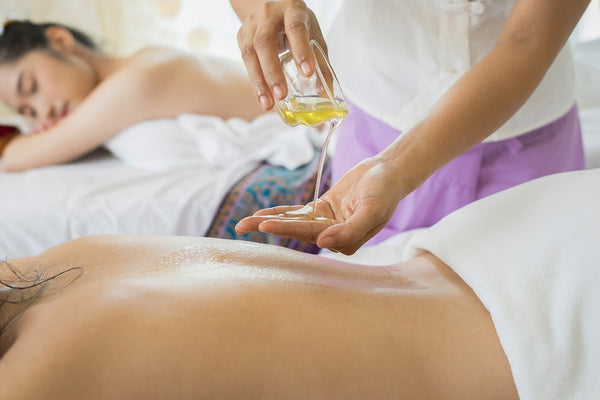
- Face - When using topical oils on the face, it could be for cleansing, moisturizing, or treatment. Oils can remove makeup from the face while dissolving impurities that may be clogging the pores. Light oils provide moisture and nourishment as well. You can treat acne, pimples, and other blemishes with a suitable topical oil.
- Skin - In skin care, essential oils are commonly used for moisturizing and nourishment. The therapeutic effects of the oils can help treat skin concerns. Apply topical oils on the affected area or all over the body depending on its use.Topical oils have great benefits when applied directly to skin. They can improve the health and appearance of skin. Learn more ways to use topical oils for skin care.
READ MORE: Skin Oil
- Hair and Scalp - Apply essential oils to hair to condition it for long-lasting moisture. You can also use it as a deep-conditioning treatment. Essential oils are safe to apply to the scalp as well to treat scalp concerns. Check out more uses of essential oils for hair and scalp care.
- Chest - If you suffer from nasal problems, cough, or colds, it’s better to apply essential oil on your chest. These oils can soothe and alleviate symptoms of cold or a cough.
- Temples - For headaches or for improvement of focus, it is best to use essential oils on temples. Other than the relaxing scent of the oil, the soothing effects help relieve headaches.
- Soles of the Feet - For better sleep, use essential oils on the soles of your feet. They help soothe a person and provide relaxation. Another use of topical essential oils is as a deodorizer that can remove the odor of your feet.
- The base of the Neck or Pulse Points - Topical oils with a soothing fragrance can be applied to your pulse points. The scent lasts longer and smells stronger when applied to these areas.
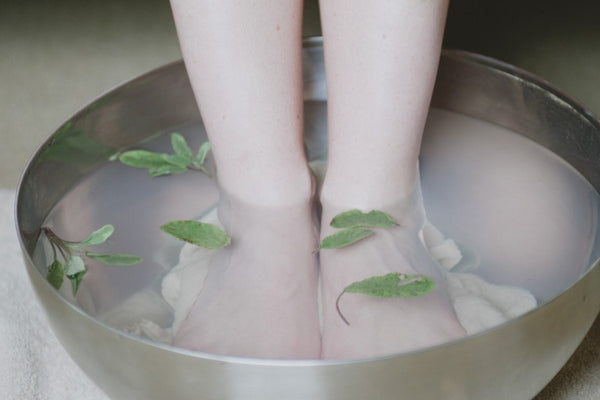
Uses of Topical Oils
Essential oils are effective moisturizers for the body from head to toe. They are rich in essential fatty acids that retain moisture on the surface and deeper layers of the skin. These oils cleanse the skin as well, dissolving impurities that clog the pores. Other than that, there are other uses of topical oils and their benefits:
- Natural Remedy - Topical oils have therapeutic effects that work well to treat skin or scalp conditions. Essential oils are natural remedies that have a wide range of healing properties. Aside from relieving symptoms of skin conditions, you can use topical oils for nasal congestion, headaches, and insomnia as well.
- Massage - The moisturizing and soothing properties of topical oils are perfect for massage. Essential oils help alleviate muscle and joint pain too.
- Compress - You can add essential oils in cold or hot compress. One of the common uses for essential oil compress is for soothing abdomen or muscle pain. It works well for sore muscles and for dysmenorrhea.
- Bath - Get softer and brighter skin after a warm bath by adding a few drops of topical oils in bath water. You can mix them with bath products such as soaps, face wash, or shampoo. They give extra nourishment and fragrance to the products. Topical oils can be used as leave-in conditioners for all hair types too. They provide long-lasting moisturize to make hair shiny and soft all day long. See more ways to use topical oils for hair by visiting the page below.
READ MORE: Hair Oil
What to Look for in Topical Oils
Topical oils have a wide range of uses that can make personal care more fun and effective. You can use an oil in various ways. Make sure to use high-quality and nontoxic topical oils before applying them to the skin. Here are some things to look for when choosing which oil to use:
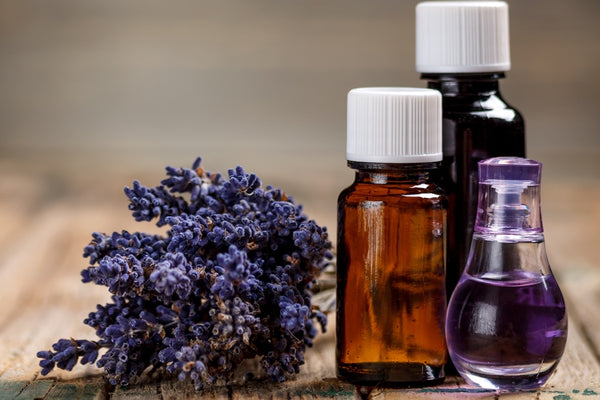
The Potency of the Oil
The strength or potency of the oil can affect how the skin or scalp reacts. Whether it’s an essential oil or a carrier oil, you should measure the potency of the oil before applying them to your skin. Look for oils that are gentle yet effective when applied.
The Scent of the Oil
The scent of topical oil also matters. There are strong scents that can make you feel nauseous or dizzy. For certain uses such as natural remedy for cold or coughs, camphorous and minty scents are the best choice. For better sleep, soothing fragrances help the body relax faster. Each scent has certain effects that can promote positive thoughts and feelings. Choose which scent is best for your purpose or how strong the scent is before applying them to the skin.
Quality of the Oil
Make sure the topical oils are pure, organic, and high-quality. Some oils can contain fillers and other additives that can cause damage to the body. High-quality oils pack nutrients and essential fatty acids that are good for the body.
Topical oils have a wide range and uses and benefits for personal care. Knowing how to use them properly helps bring out their maximum benefits whether for skin or hair. With the rich nutrients and moisture of topical oils, you can get amazing skin, hair, and nails. Try out these natural oils made from the finest ingredients. They are easy on the pocket and very effective.
READ MORE: Natural Oils

